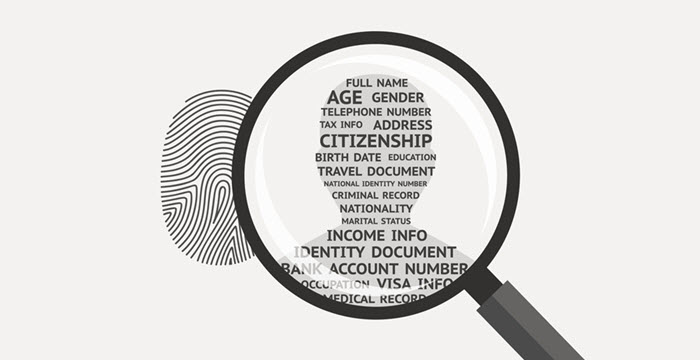When Should You Verify Someone’s Personal Details
Posted on: December 29, 2018 by Gavin MuirheadIdentity verification is the process of determining whether or not a person is the person that they say they are. It’s essentially the idea to make sure that the person that you are talking to, working with, purchasing something from, etc., is, in fact, who they claim to be. In modern days, this has become much easier, with the advent of computers, the internet, and other technological systems that can provide details quickly and easily. However, that’s not always been the case.
What is Identity Verification?
It used to be relatively difficult to verify identity, because identification items (passports, drivers licenses, birth certificates) weren’t standardized, and were frequently misplaced or poorly filed. Especially if someone was born in a different place (state, country, etc.) it was extremely difficult to verify that they were the person they were claiming to be–a trope very popular in early fiction. For example, a person who would appear, claim to be a prince or something similar, and–because the other people had never seen him–he was instantly believed, provided he could act accordingly. In today’s world, that’s exceptionally unlikely to happen, especially in many of the more modernized countries where identification details are more accurately kept and more frequently used.
Why is it Important?
The importance of checking identity should be clear–it’s always important to make sure that people are not lying, and are accurately representing themselves. Particularly in the case of important business deals, meeting new people, hiring workers, etc. — you want to make sure that the person is who they have said they are.
The advent of social media has made this a much more prominent issue; many TV shows have been dedicated to the concept “catfishing.” Catfishing is the idea that someone represents themselves one way on a social media site, and turns out to be an entirely different person once they had persuaded their victim to meet in person. While occasionally used a prank, more often it can be extremely dangerous and lead to violence, harassment, and kidnapping. Kids are taught to not trust people they meet on the internet because they may not be who they appear, and could have malicious intentions.
A less serious (or at least, less dangerous) version of this is when someone is being hired for a position or is in the process of creating a business deal, and the two people involved have not met in person; it’s possible that the other person is not accurately representing themselves, and the deal, job, or money transfer is, in fact, a scam. This can be financially ruinous.
Lastly, irrespective of social media or internet interactions, it can also be negative to not verify the identity of someone you have met in person, particularly if that person will have some financial interest in you, or will be working with disadvantaged populations. For example, verifying that the person that you hired is truly a U.S. Citizen when you state the same on your taxes will prevent you from a making a huge mistake, and verifying that the person you hired to work with children is truly who they say they are–and doesn’t have a criminal offense on their record–is the best for everyone’s safety.
When should I do it?
The most common time to verify a person’s identity is when it begins to have an impact–either physical, emotional, or financial–on your family, business, or self. Essentially, most people do it when accepting someone into a program, hiring them for a job, or becoming involved in a business transaction.

How do you verify personal identity?
Depending on the country and the person involved, identity verification can be different. In the United States, it’s most common to request a birth certificate, social security number, and another form of photographic ID (generally a drivers license) to make sure that the person is accurately representing themselves. Employers typically request these things before a person is given their first paycheck, and many programs will require them at the time of acceptance into the program. In more serious cases–i.e. government jobs–the FBI or similar agency may run a background check to identify discrepancies, criminal convictions, or similar before moving forward.
If you’re hiring someone, Affordable Background Checks provides a reasonably-priced, easily-accessed, readily-available service that can perform background checks on people or businesses and ascertain that the entity you’re working with is truly who they say they are.




